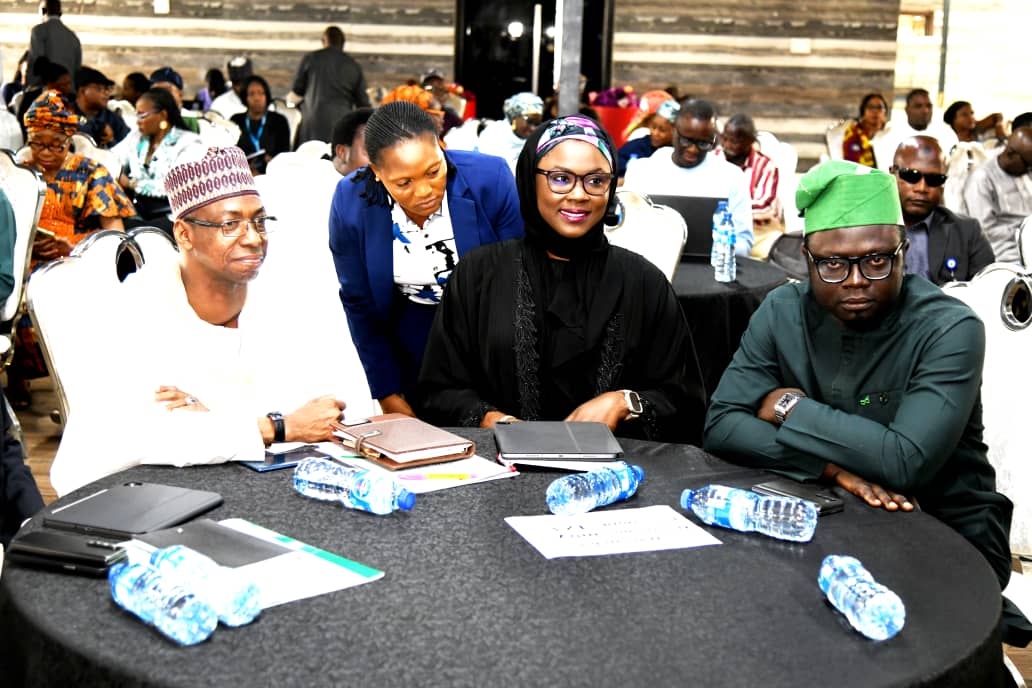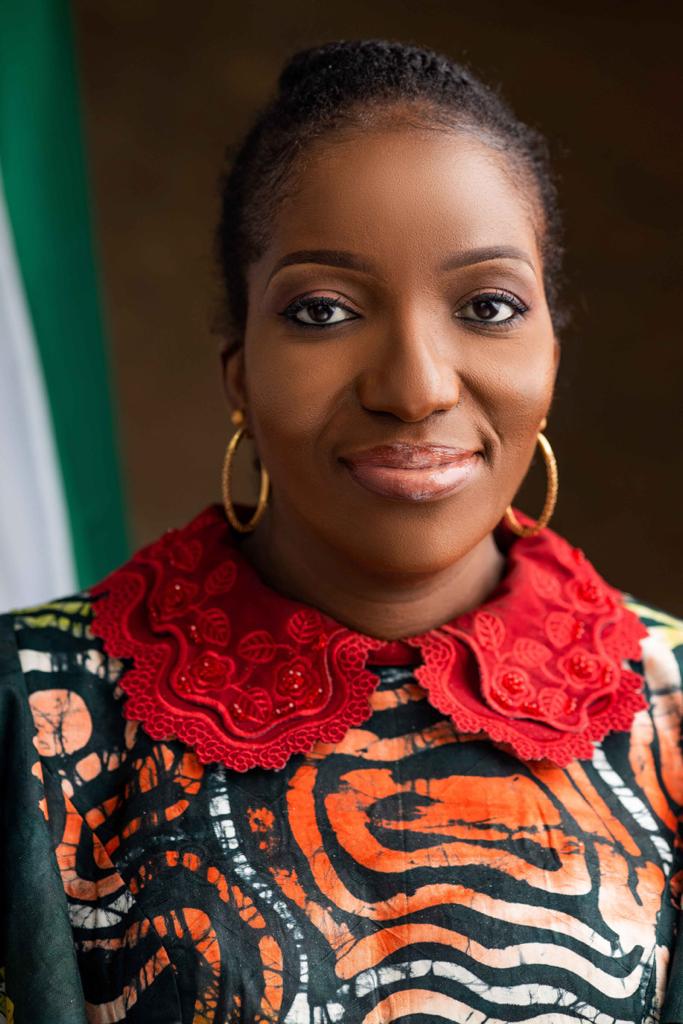Featured
FG Approves N110 Billion to Rejuvenate the National Youth Investment Fund

Joel Ajayi
The Federal Government has approved N110 billion to revitalize the National Youth Investment Fund (NYIF), for the 2024 fiscal year to serve as a cornerstone for youth empowerment.
The Minister, Ministry of Youth Development, Dr. Jamila Bio Ibrahim, disclosed this during the closing ceremony of the Ministry’s Management Retreat on Presidential Priorities and Deliverables with the theme: ‘Achieving the Eight Presidential Priorities and Deliverables’ in Abuja.
She said the fund is not just a financial reservoir but a catalyst for youth entrepreneurship and innovation aimed at bridging the gap between ambition and opportunity.
Dr Ibrahim further stated that this administration is committed to empowering every Nigerian youth through actionable policies and innovative programmes, under the visionary leadership of President Bola Ahmed Tinubu, which aligns with the renewed hope agenda.
“Federal Government has also approved the integration of Skills and Entrepreneurship Development into the NYIF programme, transitioning the NYIF Committee to an interim project management office, and investing N5 billion in the Youth Development Bank.” She added.
According to her, “the National Youth Development Bank (NEXTGEN BANK), a pioneering effort in partnership with the Bank of Industry and their private sector partners, represents a ground-breaking stride towards economic independence for our youth. With an initial take-off shareholder fund of N10 billion, this institution will be instrumental in nurturing young entrepreneurs and innovators who are the bedrock of our nation’s future.”
The Minister further explained that the Retail Development Financial Institution will be dedicated to providing financial solutions tailored specifically for young entrepreneurs, youth-backed ventures, and youth-sector enterprises, adding that with an initial capitalization of N10 billion, the bank is poised to be a pillar of support for youth-led enterprises, offering not just loans and equity but development, guidance, mentorship, and a network of resources. The Bank of Industry will be investing N2.5 billion and their private sector partners have committed to the balance of the N2.5 billion investment, and the bank will be private sector managed.
“The rehabilitation and transformation of Youth Development Centres across the country are set to commence immediately. These centres will be transformed into hubs of technical, digital, and creative skills training; bastions of social, political, and cultural engagement, amongst our youths; and sanctuaries for mental health and combatting the scourges of substance abuse and social decay. By investing in these centres, we are investing in safe spaces that foster the holistic development of the Nigerian youth”, she stated.
In his vote of thanks, the Permanent Secretary of the Ministry, Dr. Dunoma Umar Ahmed, expressed gratitude to the Federal Government, the Ministry, all development partners and stakeholders for their unwavering commitment and unflinching support towards lifting the quality of life of Nigerian youth.
Featured
NAPTIP Restates Commitment To Fighting Human Trafficking

Joel Ajayi
… decries corruption in law enforcement, weak legislation
The Director-General of the National Agency for the Prohibition of Trafficking in Persons (NAPTIP), Prof. Fatima Waziri-Azi, has pledged the agency’s commitment to fight human trafficking.
Waziri-Azi gave the assurance during an anti-corruption radio program, PUBLIC CONSCIENCE, produced by the Progressive Impact Organization for Community Development, PRIMORG, in Abuja.
The commitment by NAPTIP follows an investigative report by Human Angle Media exposing how many Nigerians trafficked to Egypt are inhumanely treated and exploited by their sponsors.
Represented by the agency’s Director of Public Enlightenment, Mrs. Kehinde Akomolafe, decried the rising number of Nigerians who are victims of trafficking, pledging that “NAPTIP is fighting on all sides to curb human trafficking.”
Akomolafe disclosed that the agency is aware of the report of Nigerians trafficked to Egypt and has already commenced interventions to rescue them while warning citizens to be wary of “offers that are too good to be true.”
She identified weak legislation, lengthy judicial processes, and corrupt law enforcement officials as factors aiding and abetting trafficking in Nigeria and elsewhere in the world.
“Corruption is endemic and cuts across other countries of the world, and that’s why trafficking is easily perpetrated in Nigeria and around the globe. You find law enforcement officials aiding and abetting traffickers. Some of them know these traffickers from their operations either at the entry or exit point. They give them something or become too familiar with them.
“Apart from the bribery aspect, we also have officials turning a blind eye to trafficking activities, and that’s why for us at the agency (NAPTIP), we are not resting.”
According to her, the agency, from inception, secured 672 convictions, 67 in 2023, and 35 persons so far this year (2024). She added that “NAPTIP is winning the war against trafficking but still wants stiffer punishment for traffickers and the support of the judiciary in hastening cases.
“weak legislation is aiding trafficking. That’s why the agency continues pushing for amendments. Currently, NAPTIP is pushing for stiffer punishment against traffickers that will lead to confiscation of their monies and property.
“NAPTIP Director-General (Prof. Fatima Waziri-Azi) is fighting on all sides against human trafficking.
“Where law enforcement officials are found complicit, NAPTIP Director-General does not take it lightly; she doesn’t compromise her anti-corruption stance even when a staff is involved,” Akomolafe stated.
According to the Editor of Southern Operations, Human Angle Media, Kabir Adejumo, many Nigerians trafficked to Egypt engage in forced labour. They are also living in fear as authorities go after illegal immigrants.
Adejumo said victims interviewed during the investigation are willing and interested in returning home, but their sponsors refuse to release their travel passports and threaten to implicate them.
He also revealed that the NAPTIP and Nigerians in Diaspora Commission (NIDCOM) are aware of the plight of Nigerians trafficked in Egypt and have currently rescued one person.
On her part, the Programme Manager of the Human Angle Foundation, Angela Umoro-David, expressed satisfaction at NAPTIP’s response to trafficking cases while urging the agency to stay on course with their mandate.
Umoro-David called on Nigerians to use a Freedom of Information platform (foi.humananglemedia.com) to help citizens navigate requests for public records from different government parastatals and agencies.
She stressed that the platform “is a website where people can submit their FOI requests to us (Human Angle), and we’ll submit it on their behalf to the particular agency. So we act as middlemen, connecting these government parastatals to the citizens”.
Public Conscience is a syndicated weekly anti-corruption radio program PRIMORG uses to draw government and citizens’ attention to corruption and integrity issues in Nigeria.
The program has the support of the MacArthur Foundation
-

 Featured5 years ago
Featured5 years agoLampard Names New Chelsea Manager
-

 Featured4 years ago
Featured4 years agoFG To Extends Lockdown In FCT, Lagos Ogun states For 7days
-

 Featured5 years ago
Featured5 years agoNYSC Dismisses Report Of DG’s Plan To Islamize Benue Orientation Camp
-

 Featured4 years ago
Featured4 years agoChildren Custody: Court Adjourns Mike Ezuruonye, Wife’s Case To April 7
-

 Featured3 years ago
Featured3 years agoTransfer Saga: How Mikel Obi Refused to compensate me After I Linked Him Worth $4m Deal In Kuwait SC – Okafor
-
Sports2 years ago
TINUBU LAMBAST DELE MOMODU
-

 News11 months ago
News11 months agoJubilation In Kaduna As Tribunal Upholds Ekene Adam Winner Of Reps Election
-
Featured5 years ago
Board urges FG to establish one-stop rehabilitation centres in 6 geopolitical zones
